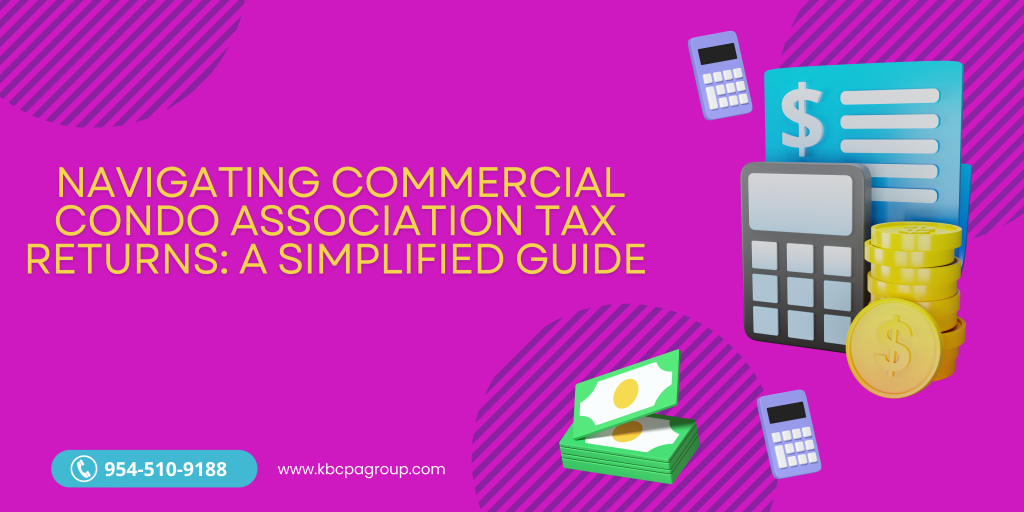As the popularity of commercial condominium projects surges, so do the associated tax complexities. Managing the tax return for a commercial condo association can be a challenge without strategic tax planning.
Understanding Commercial Condominium Projects
Commercial condo projects enable individuals to own office spaces while sharing common areas like entrances, reception areas, parks, hallways, and walkways. Unlike residential associations, commercial condo associations, responsible for managing the property on behalf of owners, face distinct tax rules and regulations.
Residential vs. Commercial Taxation
Residential associations benefit from a specific tax code, section 528, allowing them to file Form 1120-H for tax exemptions. However, commercial condo associations, falling under section 277, must file Form 1120, the same as C-Corporations.
Taxation of Condo Assessments
Income for commercial condo associations stems from member assessments and non-member activities (e.g., interest, dividends, fees). After offsetting expenses, any remaining profit is taxed. Associations must differentiate between member and non-member activities, deferring certain member income if it exceeds expenses.
Ruling 70-604: Tax Deferral
Under Revenue Ruling 70–604, associations can defer excess income, treating it as refunded to members and repaid as assessments the following year. Losses from operating expenses exceeding membership income can be carried forward under section 277.
Member Expenditures and Carryover
If member expenditures surpass income, the excess is deducted against future member income
Capital Expenditures: A Critical Consideration
Special assessments for capital projects, like improving common areas, are considered shareholder contributions and are excluded from gross income under section 118(a). Strict documentation of capital expenditures is essential, with clear records and segregation to qualify under section 118.
Avoiding Pitfalls in Tax Planning
Proper tax planning is crucial for commercial condo associations to minimize tax issues. Associations often mistakenly believe they are tax-exempt, emphasizing the need for due diligence before filing. The complexities of a commercial condo association tax return require careful documentation, segregation, and adherence to tax regulations.
In conclusion, understanding the nuances of tax treatment for commercial condominium associations is vital for ensuring compliance and minimizing tax liabilities. Proper planning and adherence to tax regulations can significantly impact the association’s financial standing and long-term success.

